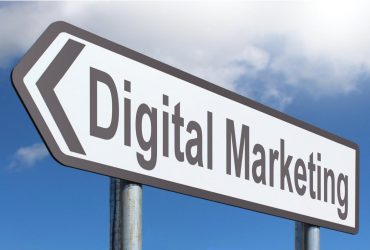INTRODUCTION
If any single trend exemplifies the online platform of nowadays, it’s social media. The largest and most celebrated Social Media Marketing community of all, Facebook, has exceeded 750 million subscribers and remains growing steadily; by population, it might be the third largest country in the world.
In many ways, social media epitomizes what the web is about: collaboration and the sharing of content, ideas and information.
Social Media Marketing is behind the explosion of content available on the Internet, as the various channels have allowed anyone with an Internet connection to be able to create and share content easily and for free.
Because social media has such a big number of participants, it is also very dynamic.
In fact, this is the chapter that is most likely to be out of date the second this book has gone to print. However, not all Social Media Marketing are created equally.
Social networks, blogs and other kinds of social media have evolved as forums where consumers discuss their likes and dislikes; and can be particularly vocal about companies and products. This information will, and should, be tracked and monitored to establish consumer sentiment.
From a strategic perspective, social media is useful for branding, creating awareness of the brand story and allowing the consumer to become involved in the story through collaboration.
Social Media Marketing platforms conjointly play a job in building awareness, due to their shareable, viral nature. They can conjointly offer crowdsourced feedback via open graphs and social analytics systems.
Social media implies a democratization of data and requires authenticity and openness from those who would deliberately use it for marketing. Just like traditional marketing, the best way to get a product into the public space is to display it somewhere where the right people (your target market) will find it and start a conversation about it. Social media networking, with their affluence and preference data, make it that much easier to find, speak to and convert your market.
There are 3 important elements of Social Media Marketing,
they are:
Having known the relevance of placing your online adverts in the right market and of targeting the keywords and users, Advertising is one major element of social media marketing. Social networking improves this idea because it involves marketing in a social space – where adverts and promotional material are less welcome.
This makes it both complicated to market (people do not want to have an advertising message compelled on them) and more powerful (since the social space is ideal for sharing, recommending and spreading adverts between friends).
- Building a Brand Presence:
This is the “soft sell” area of social media marketing.
By building a brand presence on a social media, your company becomes a social actor that can engage with customers. It also becomes a fundamental in your web Public Relation strategy.
Word of Mouth: This is the riskiest and least controllable aspect of social media networking, but one that can reap considerable rewards.
Online word of mouth spreads best over social media and can be harnessed and steered by a clever online marketer. People are even likely to try something recent based on what people in their social group have recommended – so your aim with social media is to try to get the right folks to talk regarding your brand and pass on the message.
-
FOUR BENEFITS OF SOCIAL MEDIA MARKETING
People are finding it easier to switch off or ignore traditional advertising, particularly through traditional media environments such as TV or radio. Social media provides brands the chance to interact with customers through targeted communications that customers will turn out positive on their terms. For example, a client may access a branded YouTube channel as opposed to deliberately ignoring advert breaks on television.
Social media tools are relatively easy to use, cheaper than traditional media and don’t require specialized technical skills.
This means that anyone will learn to use them effectively.
Being online is vital in our interconnected world, and social media is one of the quickest and cheapest ways to get your brand onto the internet. Your product can reach new markets and can unfold more easily online, increasing your visibility.
Additionally, peer recommendations are much more productive than pure marketing messages.
Social media can fit in nicely with any of your other online marketing strategies; a holistic digital marketing strategy is usually the best strategy.
-
RISKS OF SOCIAL MEDIA MARKETING
A poorly managed social media awareness can make your establishment look unprofessional, lazy and out of touch.
Social media needs reasonable time investment to reap rewards; there are no instant feedbacks and it takes a long time to engage meaningful interactions. If you can’t run the investment, it is sometimes better to go without it.
Each comment, reply and piece of content you put on your profile is visible for a very long time.
If considerable care is not taken, this visibility can act against you;especially if you say something inappropriate by mistake or are misunderstood by your audience.
If you handle the web Public Relation badly, this could result in brand esteem dropping, your brand being ridiculed and sales falling.
-
However, if you are doing something contrary to what your target market needs, then social media opens the channels for them to complain about this; this isn’t a bad thing.
-
Your target market may not respond to the social media channels at all, resulting in a lot of wasted time and effort.
-
This could happen either because you applied the wrong strategy to your target market, or you used social networking for a market that is unfamiliar with it.
-
With the fact that social media is a leisure-time activity, your audience may resent pushy or obvious marketing tactics. If you don’t work at maintaining meaningful relationships with your audience, you will be ignored.
facebook tweeter
 Maintaining a Good Website Security
Maintaining a Good Website Security






Comments (0)